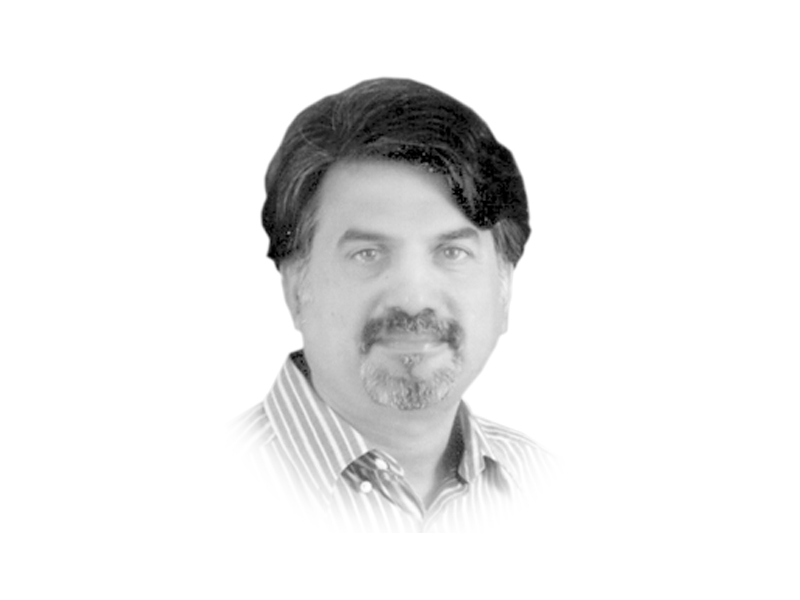
One may agree that the likelihood of a clash between two rival factions taking an even more ugly form has been prevented, but at what cost? This has happened only after the army has been called in and once again asked to perform a role to augment domestic security. Had the army not been called in, it would have been extremely difficult for the local administration to contain the violence.
The state response to the event reveals that there are still problems with the domestic security apparatus in our major cities, which fails to rise to the occasion and protect the life and property of citizens. That the army eventually becomes the final troubleshooter only goes to show the continued failure of the state to invest in improving domestic security. Controlling violence by calling in the army is not a success but a failure. The inability of both the PPP and now the PML-N government to at least develop an efficient security system in major cities only speaks of the priority that the political elite give to safeguarding the life and property of the citizenry. The political system that they head has failed to place requisite state security deterrents to discourage extremists from resorting to violence.
Why don’t we debate the nature and purpose of American aid? In the 1950s and 1960s, we benefited from ‘US development aid’ that focused on helping the people and supporting our economic growth. The aid in the 1980s was meant to strengthen our military and the premier intelligence institution. The American aid that flows in now is primarily meant to help us and America to counter terrorism.
We talk about breaking the begging bowl but where has all the aid that the Americans poured into our bowl gone? Between 2002 and 2010, the US gave Pakistan almost $19 billion. Nearly two-thirds of this money comes in the form of the Coalition Support Fund (CSF). According to Robert Gates, the former US secretary of defence, the CSF has been used to support Pakistan Army operations.
If the primary purpose of US aid has been to counter terrorism, why are we still being terrorised in our major cities? Why have the civilian governments failed to raise the level of our domestic security, at least, in our major cities? If the army is being compensated by the Americans for the military expenditures it is incurring in Fata, why is the government then short of money to build an efficient state response against those who terrorise its citizenry in the cities? If the CSF is meant to reimburse the cost the military incurred in fighting terrorism, then where is the army’s plan to counter terrorism in the cities?
Incidents like the one in Rawalpindi show how vast resources available to the state are being wasted. If a state cannot put up a worthy defence when terrorised in a city that houses its military headquarters and neighbours its capital, then the money being spent to counter terror is not being well spent. The question that the world asks today is not who is terrorising us but why we are allowing ourselves to be terrorised.
The security and stability of our country demands that we review our strategic priorities. Why is all the aid money being spent to fight terror in Fata? Why can’t we spend some of it to develop and improve the security in our major cities?
Published in The Express Tribune, November 19th, 2013.
Like Opinion & Editorial on Facebook, follow @ETOpEd on Twitter to receive all updates on all our daily pieces.
COMMENTS (11)
Comments are moderated and generally will be posted if they are on-topic and not abusive.
For more information, please see our Comments FAQ

1721394099-0/BeFunky-collage-(22)1721394099-0-165x106.webp)


1732762837-0/Taylor-(3)1732762837-0-165x106.webp)







@vijay: Per chance you missed RAW!!
@vijay: good one
@csmann: From where Mullas have come? sky? They were created by your army with the help of CIA just to get few F16
@ author: Sir, all the aid money and other resources were ostensibly used to " put India in its place". But then the powers that be failed to look within and you have such a situation in Pakistan. It is for people like you to drum into the ears of the ruling elite that a country is now respected for the size of its armed forces, but what it does for the betterment of the masses.
All the "aid" went into making business investments of the Pakistani Army - marriage halls, bakery, transport company, real estate and the like.
@mahmood: were it not for the Pakistan Army,mullahs would have torn it into thousand pieces.So easy to sit at home and talk about Pakistan,and malign those who safeguard it with their lives.
Aren't you confusing the Rawalpindi incident with the situation in FATA...Rawalpindi incident is related to Shia/Sunni issue,which has been present for decades in Pakistan...much before all this war on terror stuff.
The answer: we have become used to playing the victim. Just much easier to feel sorry for ourselves than to actually get up and do something.
Obviously by 'our bowl' you mean 'the bowl that belongs to us, the khakis'. That aid went straight to the Army and only it can tell what it did with it. This aid was not meant for the 180 million civilians of Pakistan, which is why it won't matter to them one bit if American aid was cut off tonight. Serves both of them right - the Americans for supporting a parasitic Army, and the Army for making secret deals with foreign powers.
I don't understand fully why the Rawalpindi violence is taken much more seriously than usual. Several scores of shias were killed in other parts of Pakistan just last Muharram and many of their mosques were burnt down. By comparison, this is just a fraction of what happened just last Muharram. Is it because that this time, may be for the first time, the shias did not take it lying down and retaliated and that this time the sunnis instead of the shias were the victims? Violence and killings by either sect, for that matter by anyone, is wrong and should be condemned but it only one sect is favored it will only make it worse.